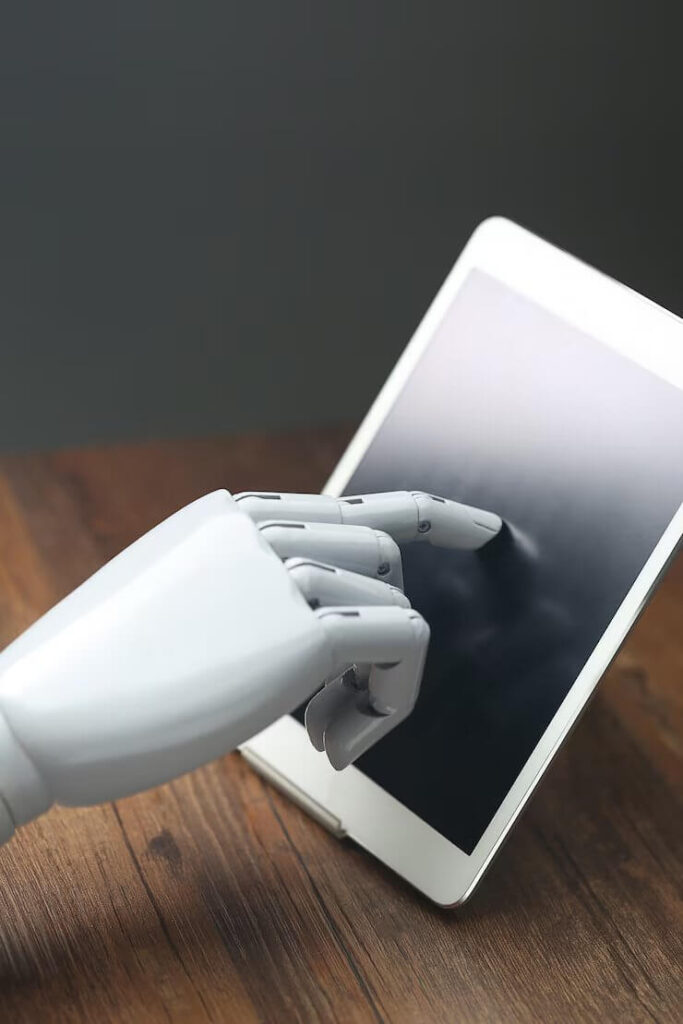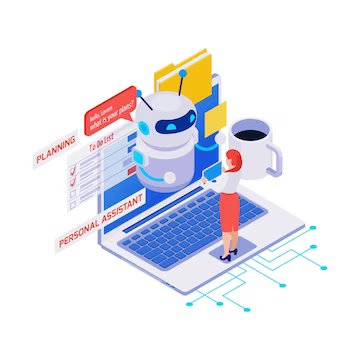AI and Cybersecurity: Career Paths and Skills Needed to Protect Digital Ecosystems

In today’s digitally-driven world, where data is the new gold, cybersecurity has become more critical than ever. As technology advances, so do the threats lurking in the digital realm. Artificial Intelligence (AI) is emerging as a powerful tool in the battle against cybercriminals. But what career paths are available in the intersection of AI and cybersecurity, and what skills do you need to navigate this dynamic field? Let’s dive into the world of AI and cybersecurity careers and uncover the essential skills to safeguard our digital ecosystems.
The Rise of AI in Cybersecurity
Before we delve into career paths and skills, it’s essential to understand why AI is making waves in cybersecurity. AI brings automation, speed, and precision to threat detection and response. It can analyze vast datasets, identify anomalies, and adapt to evolving threats in real-time. But how exactly is AI being utilized in cybersecurity?
- AI-Powered Threat Detection: AI-driven algorithms can detect suspicious patterns and behaviors, allowing for early threat detection. By analyzing network traffic, AI can spot anomalies that might indicate a cyberattack in progress, from a subtle data breach to a full-scale malware infiltration.
- Predictive Analysis: AI’s predictive capabilities enable security professionals to anticipate potential threats and vulnerabilities. By crunching historical data and recognizing trends, AI can forecast where and when the next cyberattack might strike.
- Automated Incident Response: AI can automate incident response, minimizing human intervention in the face of cyber threats. It can isolate infected devices, block malicious traffic, and even initiate countermeasures, all within milliseconds.
Career Paths in AI and Cybersecurity

Now that we’ve explored the role of AI in cybersecurity, let’s turn our attention to the exciting career paths this convergence offers:
1. Cybersecurity Analyst
- Responsibilities: Monitoring network traffic, analyzing security logs, and responding to security incidents.
- Skills Needed: Understanding of cybersecurity fundamentals, knowledge of AI-driven threat detection tools, and the ability to interpret AI-generated insights.
2. AI Security Researcher
- Responsibilities: Developing AI algorithms to enhance cybersecurity measures, staying ahead of cybercriminals.
- Skills Needed: Strong programming skills, expertise in machine learning, and the ability to think like a hacker to anticipate AI-based threats.
3. Security Data Scientist
- Responsibilities: Leveraging AI and data analysis to identify vulnerabilities and strengthen defenses.
- Skills Needed: Proficiency in data analytics, machine learning, and a deep understanding of cybersecurity principles.
4. AI Ethical Hacker
- Responsibilities: Identifying vulnerabilities in AI systems and ensuring they cannot be exploited by malicious actors.
- Skills Needed: Extensive knowledge of AI, ethical hacking techniques, and a keen eye for spotting weaknesses.
5. Security AI Engineer
- Responsibilities: Building and maintaining AI-powered security systems.
- Skills Needed: Strong software development skills, AI expertise, and a deep understanding of cybersecurity architecture.
Essential Skills for Success

To excel in AI and cybersecurity careers, you’ll need a blend of technical expertise and soft skills.
Technical Skills:
- Programming Proficiency: Master programming languages like Python, as they are the backbone of AI and cybersecurity tools.
- Machine Learning: Understand machine learning algorithms to create AI-driven security solutions.
- Network Security: Grasp the intricacies of network protocols and security measures.
- Cloud Security: As more data moves to the cloud, expertise in securing cloud environments is invaluable.
- Penetration Testing: Learn how to think like a hacker to anticipate vulnerabilities.
Soft Skills:
- Critical Thinking: Cyber threats are ever-evolving, and the ability to analyze complex situations is crucial.
- Communication: Effectively convey security concerns and solutions to both technical and non-technical stakeholders.
- Adaptability: Stay up-to-date with the latest AI and cybersecurity trends.
- Ethical Mindset: Approach AI and cybersecurity with ethics and legality in mind.
- Problem-Solving: Develop a knack for solving intricate security puzzles.
Training and Certifications
Gaining the necessary skills often requires formal training and certifications. Here are some widely recognized certifications in AI and cybersecurity:
| Certification | Description |
| Certified Information Systems Security Professional (CISSP) | Focuses on information security management and leadership. |
| Certified Ethical Hacker (CEH) | Teaches ethical hacking skills to identify vulnerabilities. |
| Certified Information Security Manager (CISM) | Concentrates on managing and governing an enterprise’s information security. |
| Certified Information Systems Auditor (CISA) | Emphasizes auditing, control, and assurance of information systems. |
| CompTIA Security+ | Covers essential security concepts and prepares for entry-level roles. |
The Future of AI and Cybersecurity
As AI continues to evolve, so will its role in cybersecurity. The digital landscape will become more complex, and the need for skilled professionals in this field will skyrocket. Cybersecurity experts with AI proficiency will be at the forefront of protecting our digital ecosystems.
But what’s next? Here are some questions to ponder:
- How will quantum computing impact AI-driven cybersecurity?
- Can AI completely replace human intervention in cybersecurity?
- What ethical dilemmas will arise as AI becomes more integrated into security measures?
In this ever-changing field, one thing is certain: AI and cybersecurity will continue to shape the future of technology and safeguard our digital world.
Final Words
Furthermore, as the digital landscape expands and becomes more interconnected, the role of AI and cybersecurity will become even more crucial. The Internet of Things (IoT), 5G networks, and the proliferation of smart devices are opening up new avenues for cyberattacks. This means that the demand for AI and cybersecurity professionals will not only grow but also evolve.
In the coming years, we can expect to see AI-driven cybersecurity solutions that can adapt to threats in real-time, making them even more effective at thwarting attacks. Additionally, the integration of AI into autonomous vehicles, healthcare systems, and critical infrastructure will necessitate specialized security measures and professionals who can protect these advanced technologies.
In conclusion, AI and cybersecurity are at the forefront of the digital revolution, and their importance will only increase. By choosing a career in this field, you’re not only stepping into a world of exciting challenges and opportunities but also playing a pivotal role in safeguarding our digital future. So, seize the chance to be a digital guardian, because in the ever-evolving realm of technology, your expertise will be in high demand, and your impact will be profound.
Frequently Asked Questions
Q1: What is the significance of AI in cybersecurity?
A1: AI is a game-changer in cybersecurity because it can automate threat detection, predict potential attacks, and enhance incident response. Its ability to analyze vast datasets and adapt to evolving threats in real-time makes it a crucial tool in safeguarding digital ecosystems.
Q2: What are the career opportunities in AI and cybersecurity?
A2: There are several career paths in AI and cybersecurity, including:
- Cybersecurity Analyst
- AI Security Researcher
- Security Data Scientist
- AI Ethical Hacker
- Security AI Engineer
Each of these roles contributes to protecting digital systems from cyber threats.
Q3: What technical skills are needed for a career in AI and cybersecurity?
A3: Key technical skills include programming proficiency (especially in Python), knowledge of machine learning, understanding network security, familiarity with cloud security, and expertise in penetration testing. These skills are essential for success in the field.
Q4: What soft skills are important in AI and cybersecurity careers?
A4: Soft skills like critical thinking, communication, adaptability, an ethical mindset, and problem-solving are crucial. Effective communication is particularly important for conveying security concerns to both technical and non-technical stakeholders.
Q5: What certifications are recommended for aspiring AI and cybersecurity professionals?
A5: Some widely recognized certifications in this field include:
- Certified Information Systems Security Professional (CISSP)
- Certified Ethical Hacker (CEH)
- Certified Information Security Manager (CISM)
- Certified Information Systems Auditor (CISA)
- CompTIA Security+
These certifications validate your expertise and can boost your career prospects.
Q6: How can I stay updated in the rapidly evolving AI and cybersecurity field?
A6: Staying updated is crucial. You can do so by attending conferences, webinars, and workshops, following industry blogs and news, participating in online forums and communities, and taking continuing education courses. Networking with professionals in the field is also beneficial.
Q7: What is the future of AI and cybersecurity?
A7: The future of AI and cybersecurity holds exciting prospects. We can anticipate more advanced AI-driven security solutions, increased integration of AI into critical infrastructure, and the need for professionals to protect emerging technologies like IoT and 5G networks. This field will continue to evolve and offer rewarding opportunities.
Q8: Are AI and cybersecurity careers in high demand?
A8: Absolutely. With the increasing frequency and sophistication of cyberattacks, the demand for skilled AI and cybersecurity professionals is soaring. As technology advances, the need for experts who can protect digital ecosystems will only grow, making it a promising and in-demand field.
Q9: Can I start a career in AI and cybersecurity with no prior experience?
A9: While some roles may require prior experience, many entry-level positions are available for beginners. You can start by acquiring foundational knowledge, earning relevant certifications, and gaining hands-on experience through internships or entry-level positions. As you develop expertise, you can progress to more advanced roles.
Q10: How can I make a difference in AI and cybersecurity?
A10: By choosing a career in AI and cybersecurity, you’re not only defending against cyber threats but also shaping the future of digital security. Your expertise will contribute to protecting individuals, organizations, and critical infrastructure from cyber adversaries. Your work will have a profound impact on the safety and security of our digital world.